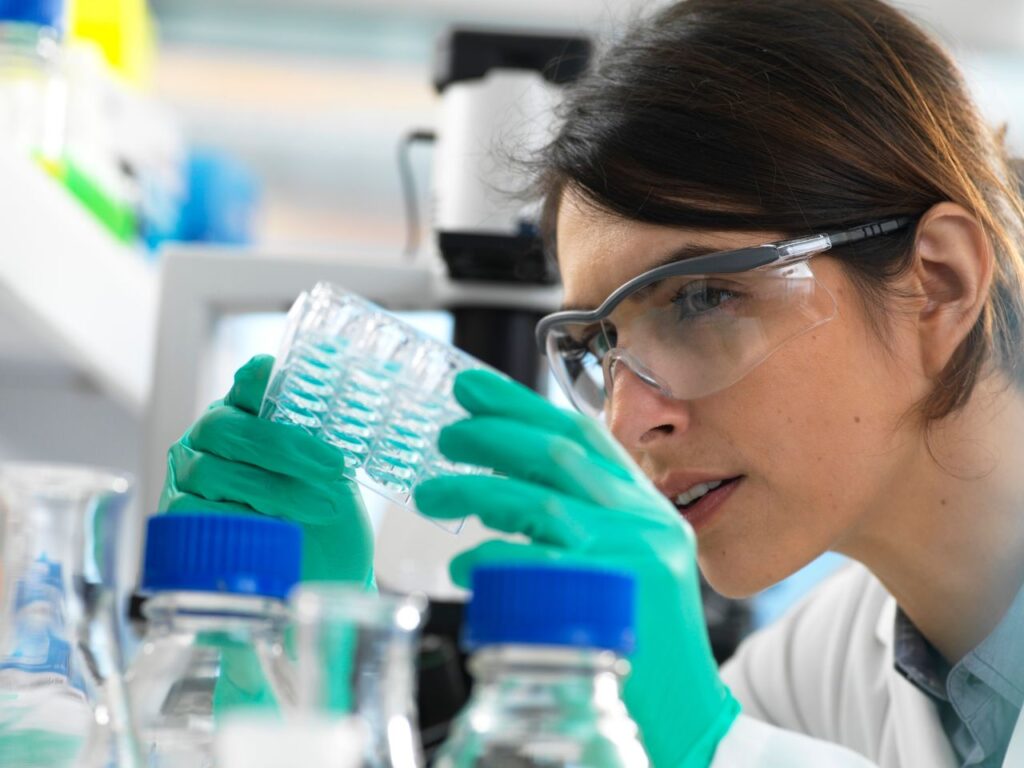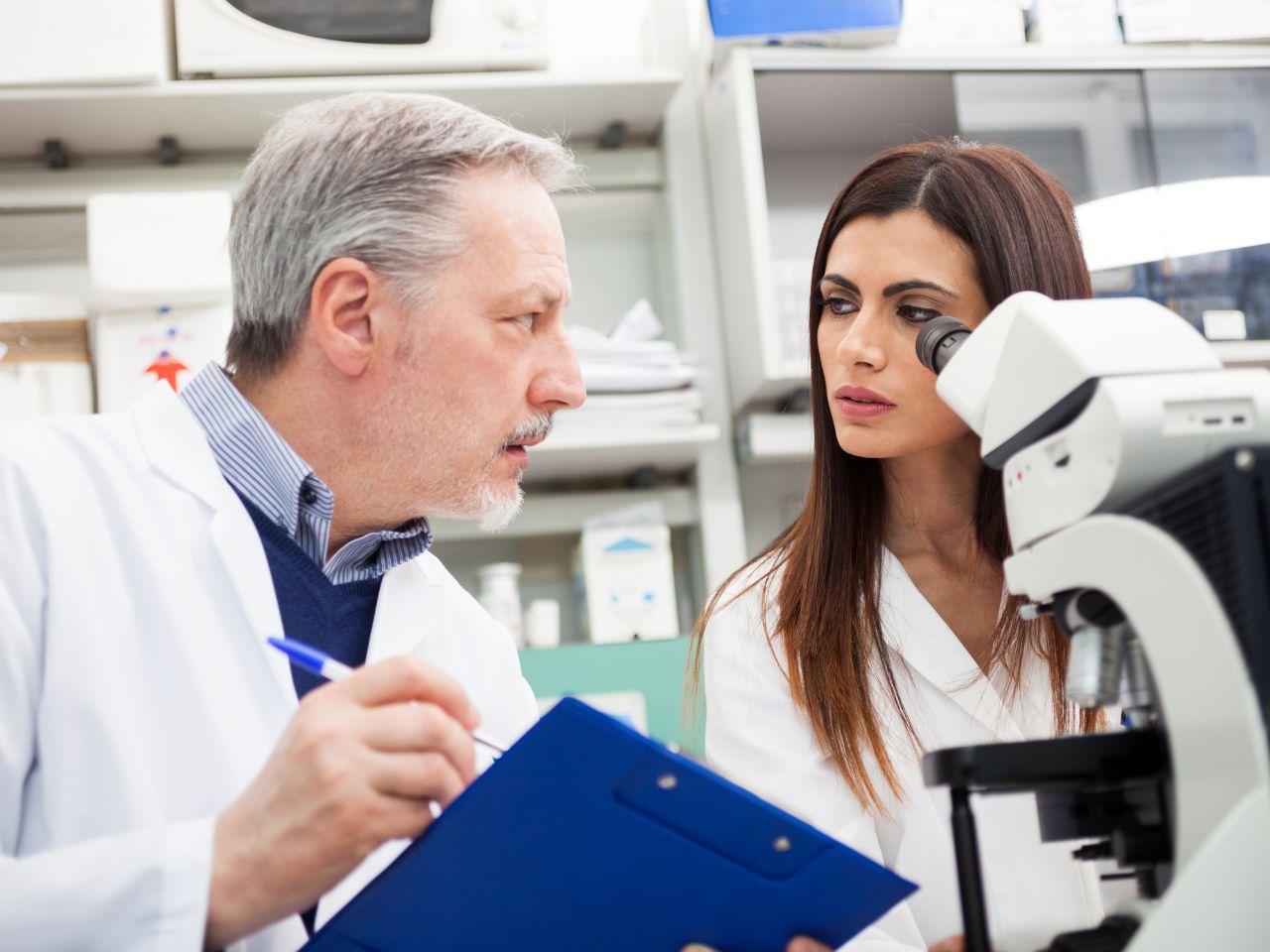The Difference between GMP and GLP in Pharmaceuticals
Understanding Good Laboratory Practices (GLP) vs. Good Manufacturing Practices (GMP) is essential when working in pharmaceuticals. They are principles of product safety and efficacy, regulated by the U.S. Food & Drug Administration, ensuring that every pill, vaccine, or treatment reaching a patient has passed through rigorous, standardized testing and manufacturing processes.
GLP governs the research and development phase, focusing on the reliability of scientific data. GMP, meanwhile, ensures that manufacturing processes are consistently executed to produce safe and effective products.
Together, they form a comprehensive quality assurance system, critical for protecting public health and maintaining trust in pharmaceutical products.
What are Good Laboratory Practices (GLP)?
Good Laboratory Practices (GLP) in the pharmaceutical industry are principles ensuring the quality and integrity of non-clinical laboratory studies crucial for assessing pharmaceuticals, chemicals, and environmental agents. GLP provides a solid framework for scientific research, emphasizing reliable and high-quality data production.
GLP: What It Is and Why It Matters
GLP sets standards for planning, performing, monitoring, and reporting laboratory studies, aiming for data reliability, reproducibility, and integrity. Adherence to these principles means laboratories uphold universally accepted technical standards.
Core Principles of GLP
GLP’s core focuses include data traceability, study conduct, transparency, and personnel accountability. This involves comprehensive SOPs, meticulous study planning, appropriate facilities, equipment, and robust data management. The goal is a quality-centric laboratory culture, producing dependable data.
GLP in Non-Clinical vs. Clinical Studies
GLP applies to non-clinical studies like toxicology and pharmacology, essential for safety assessments before human trials. While not for clinical studies which follow Good Clinical Practice (GCP), understanding GLP’s role is vital for drug and product development.
By implementing GLP, organizations commit to rigorous scientific standards, ensuring their research contributes meaningfully to safety and efficacy evaluations.
The Core Components Of GLP In The Pharmaceutical Industry
Implementing GLP is underpinned by several core components:
- Study Conduct: Adherence to standardized procedures is essential for the consistency and reliability of results. GLP mandates detailed documentation of every aspect of the study, from its design to the final report, ensuring that studies can be accurately replicated and verified.
- Personnel and Training Requirements: Competency and consistency in laboratory work are achieved through rigorous training and continuous professional development of the staff. GLP emphasizes the importance of having qualified personnel who are well-versed in the principles and practices of GLP.
- Facility Standards: A controlled environment is crucial for the conduct of reliable studies to prevent contamination, ensure safety, and maintain the integrity of the studies.

What are Good Manufacturing Practices (GMP)?
Good Manufacturing Practices (GMP) form the backbone of quality assurance in the pharmaceutical industry, ensuring that products are consistently produced and controlled according to quality standards.
The Core Components of GMP In The Pharmaceutical Industry
Implementing GMP is underpinned by several core components:
- Quality Control Unit: Implementing robust quality control is paramount in preventing contamination and manufacturing errors. This involves rigorous testing of products and raw materials, monitoring environmental conditions, and adhering to strict operational protocols.
- Manufacturing Processes: Standardization is key to product consistency. GMP requires that all manufacturing processes are clearly defined, systematically reviewed, and proven capable of consistently manufacturing pharmaceutical products of the required quality.
- Equipment and Facility Guideline: The upkeep and calibration of equipment and facilities are critical for safety and accuracy in production. GMP mandates regular maintenance, validation, and cleaning schedules for all manufacturing equipment and facilities to prevent cross-contamination and ensure product integrity.
Adherence to GMP not only safeguards the quality of pharmaceutical products but also reinforces the industry’s commitment to consumer safety. By following these principles, manufacturers can avoid costly recalls and maintain their reputation in the highly regulated pharmaceutical market.
GLP vs. GMP: The Major Differences
Distinguishing differences between GLP and GMP is crucial for their application in the pharmaceutical industry. The key differences lie in the roles of Study Directors, Quality Assurance (QA) approaches, and documentation standards.
- Study Director’s Role: In GLP, the Study Director is the linchpin responsible for ensuring study compliance and data integrity. This role, focused on singular accountability, does not have a counterpart in GMP, which emphasizes broader production processes.
- Quality Control Approaches: GLP’s Quality Assurance Unit is centered on process, aiming for study compliance through audits, whereas GMP’s Quality Control Unit targets product quality, emphasizing rigorous testing and validation of manufacturing processes for consistent and safe product outputs.
- Documentation Standards: GLP demands extensive documentation for study traceability and reproducibility, aiding in regulatory review. In contrast, GMP focuses on documenting manufacturing processes to ensure product quality and facilitate any necessary recalls.
These distinctions underline the specialized approaches required within each framework, essential for ensuring the integrity of scientific research and the quality of manufactured products.
The Importance of Compliance with GLP and GMP
Adherence to GLP and GMP is essential for safeguarding consumer safety and achieving product excellence, helping companies exceed regulatory standards and uphold public health and business integrity.
Best Practices for GLP or GMP Compliance
Effective compliance with Good Laboratory Practices (GLP) and Good Manufacturing Practices (GMP) hinges on a few critical strategies:
- Comprehensive Training Programs: Essential for ensuring all team members understand GLP and GMP standards, tailored training enhances role-specific compliance and understanding.
- Robust Quality Management Systems (QMS): A QMS compatible with current processes promotes GLP and GMP adherence by automating documentation, tracking compliance, and facilitating audits.
- Regular Audits and Reviews: Internal and external audits identify compliance gaps and improvement areas, refining practices for higher standards.
- Technology Utilization: Implementing systems like Laboratory Information Management Systems (LIMS) for GLP and Enterprise Resource Planning (ERP) for GMP minimizes manual errors and boosts data integrity.
- Networking and Collaboration: Engaging with industry groups offers insights into overcoming compliance challenges through shared experiences and innovative solutions.
Adopting these practices ensures continuous compliance, enhancing the quality and safety of laboratory and manufacturing processes.
Become Certified in GMP with Cobblestone Pharma Training

GMP Laboratory Control Professionals Certification
Our GMP Laboratory Control Certification program teaches you the fundamental concepts and tools that a GMP Laboratory Control Professional must know. Its goal is to give rules, tools, and methods for managing GMP labs in a way that is effective and legal. This GMP Laboratory Control Certification Program gives professionals like you the training and skill development they need to earn their certificate of completion.
GMP Professional Certification
Cobblestone’s GMP Professional Certification program will cover techniques and practices to ensure compliance with these regulations, including manufacturing, packaging, holding, distribution, and the laboratory. It will provide a practical application of the cGMP on the operating level.
